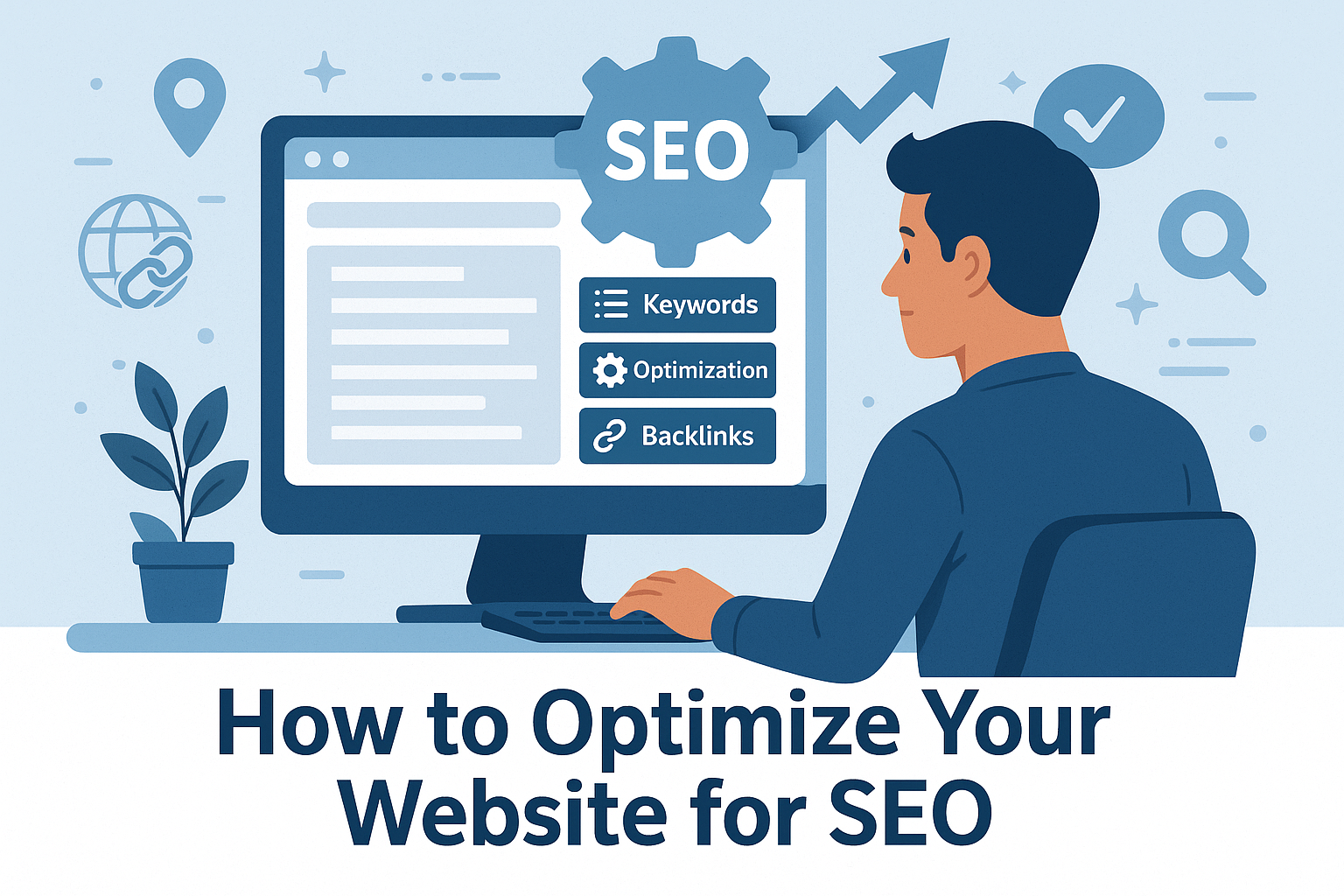How to Optimize Your Website for SEO
Search Engine Optimization (SEO) is crucial for improving your website's visibility and ranking on search engines like Google. Here’s a simple guide to optimizing your website for SEO.
1. Keyword Research
Identify relevant keywords that your target audience searches for. Use tools like Google Keyword Planner, Ahrefs, or SEMrush to find high-traffic, low-competition keywords.
2. On-Page SEO
- Optimize Title Tags & Meta Descriptions: Include target keywords naturally.
- Use Header Tags (H1, H2, H3): Structure content for readability and SEO.
- Internal Linking: Link to relevant pages within your website to enhance user navigation.
- Optimize Images: Use alt tags and compress images for faster loading.
3. High-Quality Content
- Write valuable, engaging, and original content.
- Use a mix of text, images, and videos to enhance user experience.
- Regularly update content to keep it fresh and relevant.
4. Technical SEO
- Improve Website Speed: Optimize images, use caching, and enable compression.
- Mobile-Friendliness: Ensure your site is responsive and loads well on all devices.
- Secure with HTTPS: Use an SSL certificate to improve security and trustworthiness.
- Fix Broken Links: Regularly check and fix 404 errors.
5. Off-Page SEO
- Backlink Building: Get high-quality backlinks from reputable websites.
- Social Media Engagement: Share content on social platforms to increase visibility.
- Guest Posting: Write articles for other websites to gain backlinks and authority.
6. Local SEO (If applicable)
- Optimize for Google My Business listing.
- Use local keywords and location-based content.
- Encourage customer reviews and testimonials.
7. Regular Monitoring & Analytics
- Use Google Analytics and Google Search Console to track website performance.
- Analyze traffic, keyword rankings, and user behavior to make data-driven improvements.
By implementing these SEO strategies, you can enhance your website’s ranking, attract more visitors, and grow your online presence effectively.
